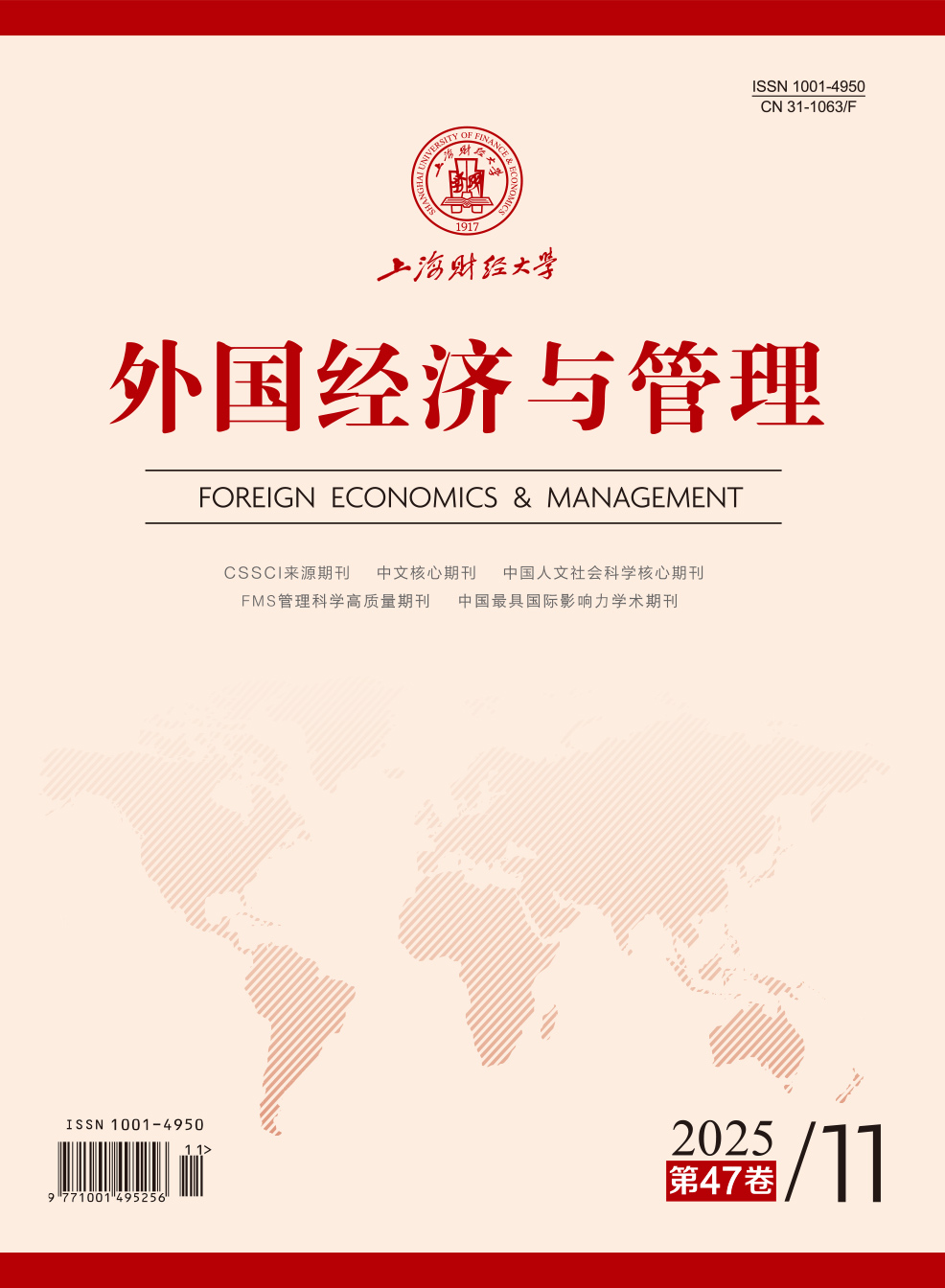试论知识管理思维方式从二元对立到三元平衡的变迁及其意义
外国经济与管理 2013 年 第 35 卷第 01 期, 页码:73 - 80
摘要
参考文献
摘要
知识经济时代,知识对于管理思维方式的变化起着至关重要的作用,因此,要厘清管理思想的变迁轨迹,就必须对基于知识的管理思维方式进行系统、宏观的有效统摄和阐释。总体来看,基于知识的管理思维方式历经了一个从二元对立(显性知识与隐性知识)到三元平衡(感性知识、理性知识和活性知识)的变迁过程。通过剖析这个变迁过程,本文比较全面地分析了二元对立管理思维方式的特征、功用和局限性以及三元平衡管理思维方式的结构、重塑与超越等问题,以期更加深刻地理解基于不同知识类型的管理思维方式实现过程及其差异性,为时下流行的基于知识的管理实践提供理论支撑。
②西方管理学家的普遍心路历程是主观与客观二元对立的双重交替,他们尊崇主客二分法,把客观世界作为独立于人之外的事物来研究,并把客观世界分为本质世界和现象世界,目的是要通过认识现象世界背后的本质来揭示客观世界的内在规律性。罗珉教授曾在他的《论管理学的现代主义遗产与后现代精神》(《外国经济与管理》2007年第3期)一文中对这个问题做过深刻的诠释。
[1]Bhagat R S,et al.Cultural variations in the cross-border transfer of organizational knowledge:An integrative frame-work[J].Academy of Management Review,2002,27(2):204-221.
[2]Bontis N.E-business essentials[M].Greenwich,CT:Informa-tion Age Publishing,2002.
[3]Haas M and Hansen M.Different knowledge,different bene-fits:Toward a productivity perspective on knowledge sharing in organizations[J].Strategic Management Journal,2007,28(11):1133-1153.
[4]Hargadon A and Fanelli A.Action and possibility:Reconci-ling dual perspectives of knowledge in organizations[J].Or-ganization Science2002,13(3):290-302.
[5]Kogut B and Grandori A.Dialogue on organization and know-ledge[J].Organization Science,2002,13(3):224-231.
[6]Lam A.Tacit knowledge,organizational learning and societal institutions:An integrated framework[J].Organization Stud-ies,2000,21(3):487-513.
[7]Long D and Fahey L.Diagnosing cultural barriers to know-ledge management[J].Academy of Management Executive,2000,14(2):113-127.
[8]Marshall N.Cognitive and practice-based theories of organiza-tional knowledge and learning:Incompatible or complementary[J].Management Learning,2008,39(4):413-431.
[9]Nonaka I,et al.The art of knowledge:Systems to capitalize on market knowledge[J].European Management Journal,1998,16(6):673-684.
[10]Polanyi M.The tacit dimension[M].Garden City,NY:An-chor Books,Double Day and Company,1967.
[11]Spender J.Making knowledge the basis of dynamic theory of the firm[J].Strategic Management Journal,1996,17(1):45-62.
[12]Yang B.Toward a holistic theory of knowledge and adult learning[J].Human Resource Development Review,2003,2(2):106-120.
[13]郭咸纲.西方管理思想史[M].北京:经济管理出版社,2004.
[14]屠兴勇.“知识整体理论”的基本假设及理论贡献——基于知识与管理的认识论视角[J].社会科学,2011,(6):47-56.
[15]屠兴勇.组织知识定义及多维立体型分类框架研究[J].管理学家(学术版),2012,(2):16-30.
[16]屠兴勇.三元知识运作管理模型建构与三元知识理论应用价值探析[J].外国经济与管理,2012,(3):10-19.
[1]Bhagat R S,et al.Cultural variations in the cross-border transfer of organizational knowledge:An integrative frame-work[J].Academy of Management Review,2002,27(2):204-221.
[2]Bontis N.E-business essentials[M].Greenwich,CT:Informa-tion Age Publishing,2002.
[3]Haas M and Hansen M.Different knowledge,different bene-fits:Toward a productivity perspective on knowledge sharing in organizations[J].Strategic Management Journal,2007,28(11):1133-1153.
[4]Hargadon A and Fanelli A.Action and possibility:Reconci-ling dual perspectives of knowledge in organizations[J].Or-ganization Science2002,13(3):290-302.
[5]Kogut B and Grandori A.Dialogue on organization and know-ledge[J].Organization Science,2002,13(3):224-231.
[6]Lam A.Tacit knowledge,organizational learning and societal institutions:An integrated framework[J].Organization Stud-ies,2000,21(3):487-513.
[7]Long D and Fahey L.Diagnosing cultural barriers to know-ledge management[J].Academy of Management Executive,2000,14(2):113-127.
[8]Marshall N.Cognitive and practice-based theories of organiza-tional knowledge and learning:Incompatible or complementary[J].Management Learning,2008,39(4):413-431.
[9]Nonaka I,et al.The art of knowledge:Systems to capitalize on market knowledge[J].European Management Journal,1998,16(6):673-684.
[10]Polanyi M.The tacit dimension[M].Garden City,NY:An-chor Books,Double Day and Company,1967.
[11]Spender J.Making knowledge the basis of dynamic theory of the firm[J].Strategic Management Journal,1996,17(1):45-62.
[12]Yang B.Toward a holistic theory of knowledge and adult learning[J].Human Resource Development Review,2003,2(2):106-120.
[13]郭咸纲.西方管理思想史[M].北京:经济管理出版社,2004.
[14]屠兴勇.“知识整体理论”的基本假设及理论贡献——基于知识与管理的认识论视角[J].社会科学,2011,(6):47-56.
[15]屠兴勇.组织知识定义及多维立体型分类框架研究[J].管理学家(学术版),2012,(2):16-30.
[16]屠兴勇.三元知识运作管理模型建构与三元知识理论应用价值探析[J].外国经济与管理,2012,(3):10-19.
引用本文
屠兴勇, 何欣. 试论知识管理思维方式从二元对立到三元平衡的变迁及其意义[J]. 外国经济与管理, 2013, 35(1): 73–80.
导出参考文献,格式为:
上一篇:管理学批判理论述评





 9716
9716  542
542

